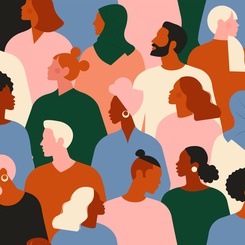Who lies more: business students, or medical students? It depends on the type of lie. Radu Vranceanu of ESSEC Business School and Damien Besancenot of University of Paris 5 explore the question in their recent research.
In the last fifteen years, the literature in experimental economics on lies and deception has expanded at a steady pace. A substantial body of evidence with elementary deception games has established that some people resist the temptation to lie regardless of the potential benefits and that those who do lie do not push the lies to extreme limits, even if they forgo positive gains by doing so.
In general, the academic literature refers to a selfish black lie as a situation in which a false statement issued by the sender (the person lying) prompts the receiver (the person being lied to) to take an action that improves the well-being of the sender and deteriorates the well-being of the receiver. These selfish lies are common in the world of business and are, unfortunately, part of many commercial negotiations. Several studies have focused on the more ethically ambiguous white lies, where the false message is beneficial to the receiver, and further distinguish between Pareto white lies, from which both the sender and the receiver benefit, and altruistic white lies, where the sender sacrifices some of his/her benefit for the benefit of the receiver.
In a recent research paper in the Journal of Economic Behavior and Organization (September 2020), Damien Besancenot and Radu Vranceanu compare the differences in lying behavior between two groups of subjects exposed to different professional norms, expectations and stereotypes, namely, business and medical students. In the received folk wisdom, the students in the former group should be rather selfish, and the latter more altruistic and inclined to help others. This might in turn influence their lying behavior.
The experiment allowed us to directly observe the lying behavior of the respective groups. The core task is a modified version of the sender-receiver deception game as introduced by Erat and Gneezy (2012) to analyze white lie behavior in a homogenous group of students. In addition, this study elicits the degree of altruism by means of a standard giving task, and risk aversion. The data pertain to about 400 students from two leading medical and business higher education institutions in the Paris region.
Studying the strategic communication issue, it turns out that students of both profiles respond to incentives: they will lie more if they obtain a higher benefit from lying, and lie less if their action is harming the other party more than it is helping them.. However, while many students lie, a non-negligible share of both medicine and business students refuse to tell even a Pareto white lie, which would deliver significant gains to both parties.
The observed propensity to tell white lies was similar between the two groups. On the other hand, medical students appear to be significantly more reluctant than business students to tell selfish lies. These results hold when accounting for altruism and risk aversion.
A representative survey of the French population, conducted in July 2020 by OpinionWay for the purpose of the paper, revealed that the general public of France expects selfish lies to be more frequent in the business sector than in the medical sector, and the opposite for white lies.. These results match the behavior observed in the experiment, and might suggest one possible explanation of why young people self-select for a given profession.
These findings give us an insight into lying and deception behaviors and into the emerging field of behavioral health economics. They call attention to the risk of quick generalization of results based on business and economics students, which represent the dominant population for lab experiments in economics.
References
Erat, Sanjiv, and Uri Gneezy. 2012. White lies. Management Science, 58(4), 723-733
Besancenot, Damien and Radu Vranceanu. 2020, Profession and deception: Experimental evidence on lying behavior among business and medical students, Journal of Economic Behavior and Organization, forthcoming 2020.









